Running Injuries
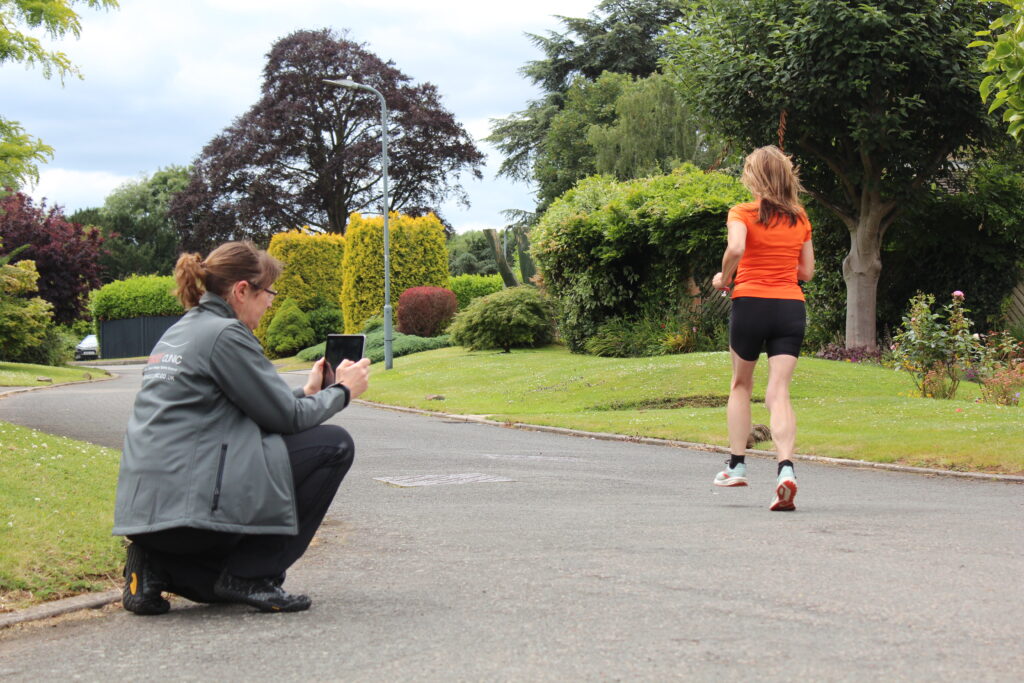
At The Reinge Clinic we are Running Specialists. We have years of experience dealing with Running Injuries and Runners and are able quickly and efficiently get to the root cause of your running Injury.
We draw on our specialist training not only in Physiotherapy and Sports Therapy but also in Sports Science, which deals specifically with biomechanics, the basis of most running problems.
What Causes a Running Injury?
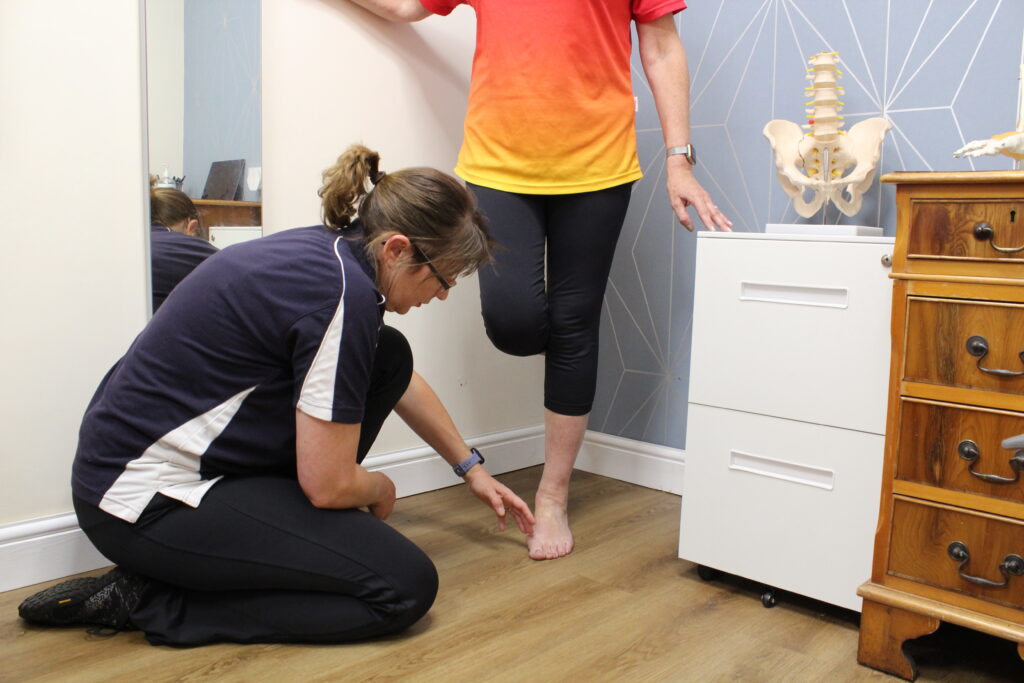
Most running injuries have the basis in the foot. The foot is the only contact point with the floor during running as as a result takes all the forces of running. If the foot is able to cope with these forces, the rest of the body generally copes creating efficient running.
However, if the foot or ankles are weak, this can lead to over or under pronation while running which ultimately leads to pain and injury.
IT Band Syndrome
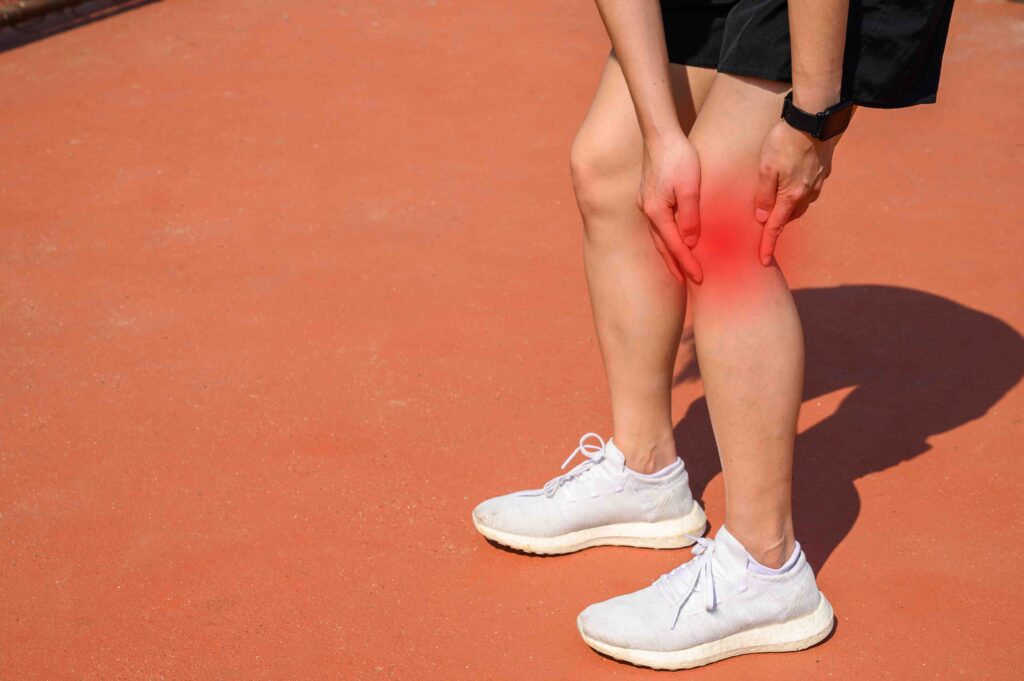
IT Band syndrome is often associated with running. Generally it is felt on the outside of the knee and mostly while running. It often improves when running stops but can sometimes continue while walking.
To understand why you are getting pain on the outside of the knee, we need to understand the forces that are occurring in the knee when you run.
In an ideal world our foot would hit the floor and the forces would travel centrally up though the knee and into the hip. However, if we over pronate when we run. Meaning our foot drops in an inward direction when we run, the these forces will cause the knee to collapse inwards.
If the knee is repeatedly collapsing inwards while we run, the muscles that attach to the outside of the knee are constantly being tugged. In response to this they will create inflammation as the tendons get irritated.
After a while this inflammation will become chronic and will hurt as soon as you start to run. To rectify this problem we need to treat the knee and calm down the inflammation, but we also need to solve the underlying issue causing it. The over pronation coming from your foot.
How to treat Pronation in Running.
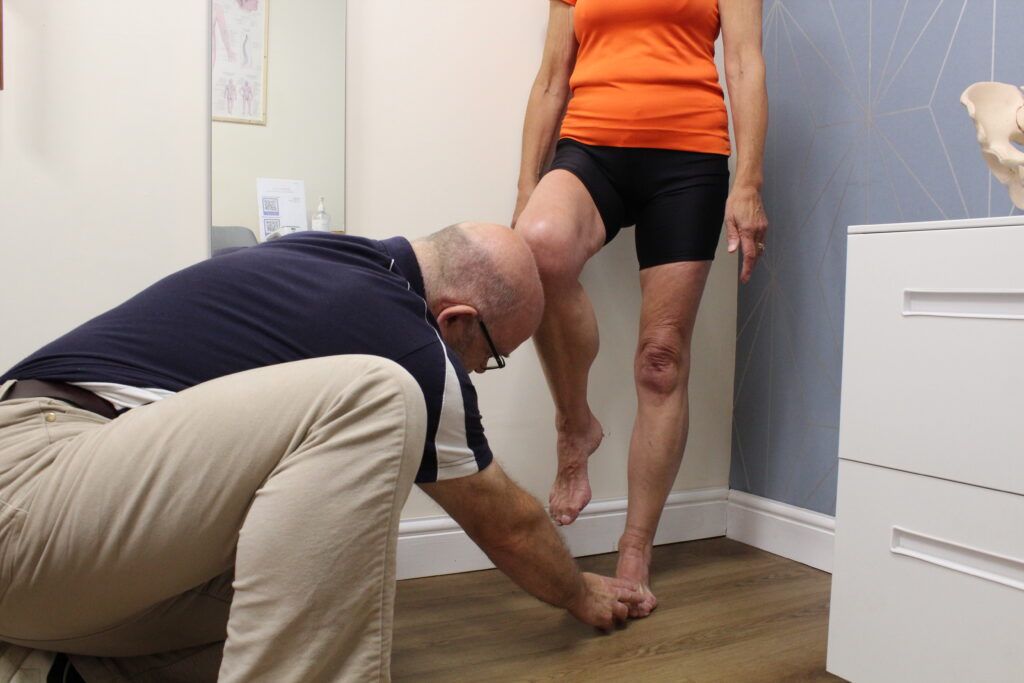
There are several ways to solve over pronation (The foot flattening and falling in when we walk or run). The reason we over pronate when we stand, walk or run, is because we have weak arches.
The arches of the foot are created by the ligaments, bones and muscles of the foot. We can’t do much about the ligaments and bones but we can strengthen the feet.
The long term solution to over pronation is to strengthen the feet. Take a look at our video on this where we show you how to strengthen your feet.
You may have been advised to get over pronation, motion control shoes or an arch support and this may solve the issue for a while. However, as your shoe gets older or your foot gets weaker these support systems rarely work long term.
If you have weak arches and pain on running or walking, we can assess your running and give you targeted strengthening exercises to solve the problem for the long term
Shin Splints
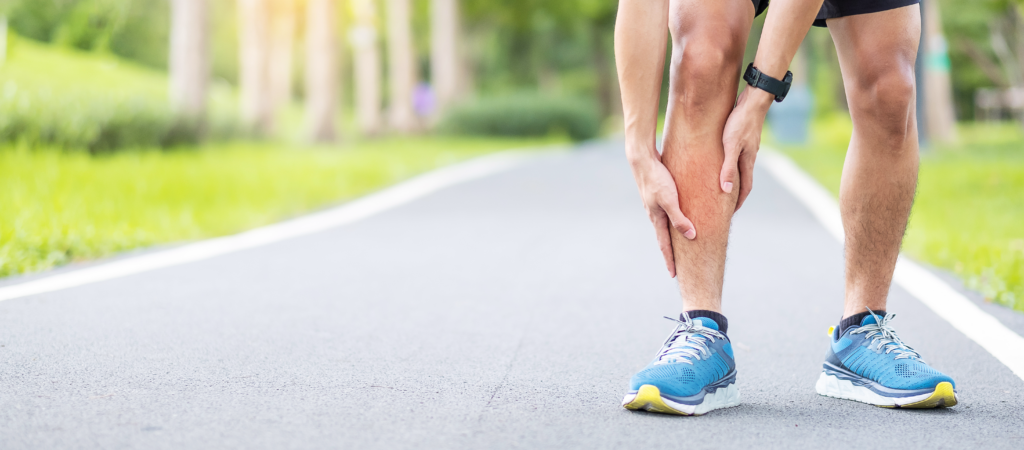
Shin Splints create huge issues for many runners. They create pain and tenderness along the lower leg area of the shin. The pain can make it hard, or impossible to run or even walk.
Shin splints generally occur when too much stress is placed on the bones at the front of the shin. There are muscles and facia systems that attach to these bones, if they can’t cope with the stress exerted, they get inflamed and painful. Shin splints tend to recur if your muscles can’t handle the forces being placed on them.
There are several ways to limit this from occurring. Building up slowly to your targeted running intensity and distance allows the muscles a chance to adapt to the increase workload and get stronger. This helps them to handle the forces being asked of them. Sudden changes to speed, distance or intensity often create pain in the shin area.
Understanding at how your foot hits the floor is another important factor in how your leg will cope with the forces of running. If a runner hits the floor with their heel first, they are very dependent on their shoe for absorbing the forces produced. The heel bone is not designed to absorb large forces, such as those seen in running. It is designed for the smaller forces of walking.
The solution is to move to a more mid-foot strike. If you need help to do this, get in touch and we can assist.
How do we treat running injuries
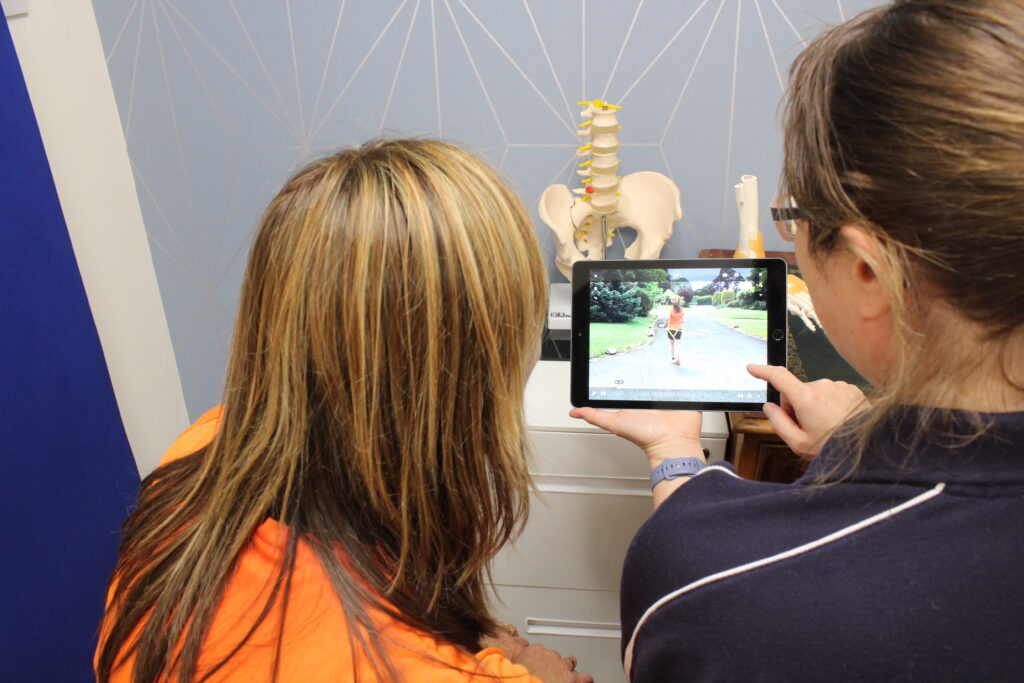
In addition to our Clinical skills we are Sports Scientists. We have Degrees and Masters Degrees in Sports Science so we understand forces and biomechanics.
As a result, in addition to assessing the specific joint or muscle that is hurting you, we get to the root case of your running injury by completing a Running Gait Assessment. Learn more about our Running Assessments by clicking here.
This allows us to see how you strike the floor when you run, understand where the forces are going and how they are affecting the joints and muscles throughout your body.
From there we can alter how your run, restrengthen specific muscles or change your shoe type to solve your running injury.
Frequently Asked Questions about Running Injuries
Knee pain when running is usually fixed within 2 or 3 sessions. Our running assessments usually highlight where the problem is on the first session. By the second session most people have considerably less pain and are often completely pain free by the third session.
Occasionally the pain is more complex and may take longer.
We have two options for Runners. We charge £120 for a 90 minute running Assessment where we will video you run and complete a comprehensive assessment of your body and how you run.
If your issue is more simple, we have a shorter running session lasting 50mins that costs £76 where we do a shorter assessment but still includes a video assessment.
You can book for our standard Physiotherapy/ Sports Therapy session where we will assess your injury but not complete a video assessment and this costs £70 for a 50min session.
It is never a great idea to run through pain. If the pain is short lived and disappears shortly after running it is fine to continue. But pain that continues or gets worse while you run needs to be checked out.
Knee pain is one of the most common issues we see in runners.
The knee sits between the foot and the hop and is affected by both the health of the foot and the pelvis. If either of thses areas isn’t functioning correctly knee pain can occur.
Any pain that doesn’t calm down within 2 weeks needs to be assessed as it is unlikely to resolve by itself.
Initial treatment of any acute injury should be ice. Ice the painful area for 10 minutes at a time, every hour if possible for around 2 days.
If that hasn’t calmed the area down you will need to give us a call to get it assessed.
If it does calm down then you need to work out what caused it. If you start running again and the pain stays away, then continue running. If pain starts again on running, you will need to get it assessed to understand where the pain is coming from.
You should let an acute injury calm down before attempting to run again. Use ice to calm it down and once pain free try to run again.
If you have pain after a certain distance, say 5k, then limit your running to the pain free distance, so less than 5k. While you try to work out why you have pain. It could be that your gait changes after 5k as you start to tire and your need some strengthening to solve the issue.
If you have pain immediately on running that doesn’t calm down after a few minutes of running, it isn’t advisable to run. Give us a call and we can assess why you have pain and get you running again quickly.
What Our Clients Say About Us?
Zoe Statters
October 20, 2022
Always upbeat, friendly, offers useful advice & service is always top notch, suggestions and treatments that actually work!
Barry Elkington
September 5, 2023
I went to the clinic for a running gait assessment with Ian. No specific injury problems, but from the wear on my running shoes I knew there was something not quite right. A very professional approach to not only analysing my style but also identifying the cause of the problem. Suggested exercises provided which should help, and the offer to review again in a few months if I sent a video. Couldn't really have asked for more.
John Hayden
September 5, 2023
I attended the Reinge Clinic with a back problem and painful right hip caused by some rather over enthusiastic running. Gina immediately identified the underlying cause and over three sessions together with her recommended exercises the problems have been resolved. A very friendly and professional service. I would definitely recommend the clinic.
Simon Perkin
September 5, 2023
I was introduced to Gina & Ian, the owners, who are in the process of transferring their long established business in Bristol to Kenilworth in Warwickshire. A few weeks earlier, I had a calf strain & over the years, my calfs have tended to be tight with me pulling my calf 18 months ago & some 10 years or so. Despite this, I have managed to get back, ran a half marathon in 1.29, 5k in sub 20 minutes & represented my country at 5k, 1500m & 800m. I have, however, always worried about calf niggles. I went to see Ian in his impressive Kenilworth practice. He did both a running gait & complete assessment, a bit of treatment & recommended no running for 6 weeks & 2 specific exercises which would take me no more than 10 minutes each day. I did not need to see Ian again but was determined to get back running & preferably injury free. Over the next 6 weeks, I continued with the exercises & started walking. After easing back into the running, I can now confidently report that I have ran 3 park runs in sub 22 minutes, jogged 2 hours & my calfs feel so good. As a precaution, I will book in to see Ian again in the next few days. What I like most about both Gina & Ian is that they are professionals, on your side & wanting to get to the root cause of the real problem; something many other health professionals just don't do. I can fully recommend both Gina & Ian. Thank you for your advice & support.
Debbie Cooper
September 5, 2023
I began seeing Gina towards the end of 2020 due to having severe back pain. I have a lower lumbar fusion and 2 slipped discs. After a thorough inspection and assessment Gina was able to begin her diagnosis and spec out a plan for me. At the point of first meeting Gina I was in so much pain that I could barely be touched and now I am able to train, run and cycle again without feeling pain. I am now undergoing running assessments to understand where my issues are, how to rectify them safely and set realistic goals.
Ciprian Ormenisan (Chip)
September 5, 2023
I used The Reinge Clinic to help me with my gait as I was training for the London Marathon. My running technique was all wrong, but with their help, it improved significantly, and I finished my first marathon at the age of 46. The sports massages kept me in top form and free from injuries. I would give them 5 stars and will definitely return to them in the future!
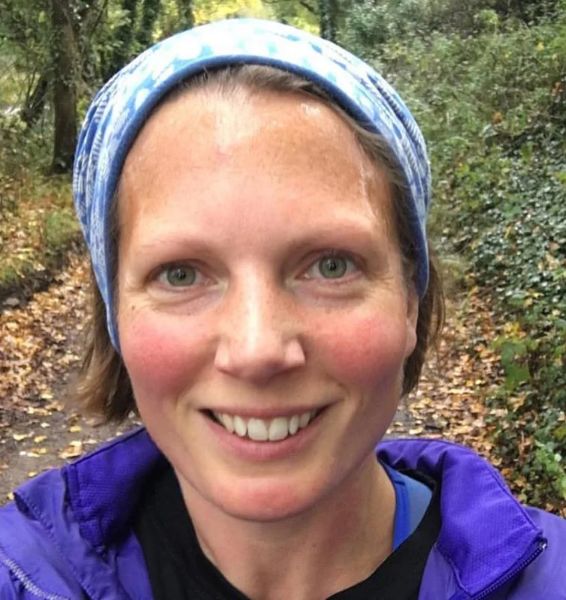
Lesley Waldron
September 5, 2023
Gina has become my ‘go to’ therapist for all my training niggles and injuries as well as for many of my clients. I enjoy her no nonsense approach that addresses so much more than the specific joint or muscle causing me discomfort. I tend to learn a lot from each appointment and I am convinced it has helped both my running as well as my own work with personal training clients. Gina keeps me running and keeps me working – both of which I love, so I thoroughly recommend her. I even recommend a visit even if you’re not injured! She can help you improve your posture and technique as well as help with race recovery.
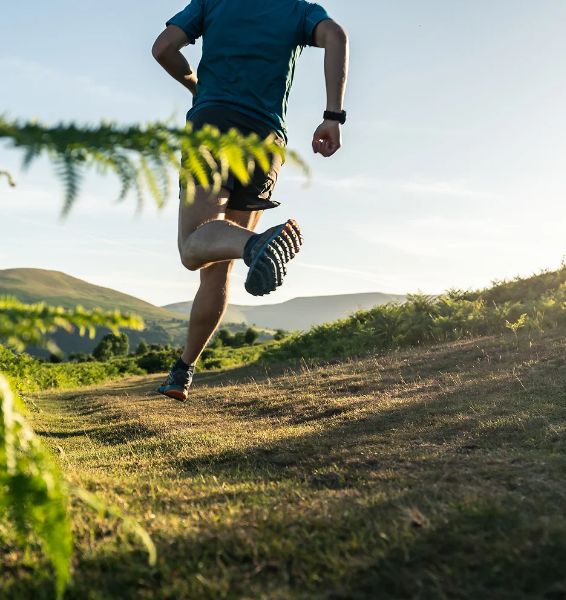
Jason Lammie - Ultra Runner
September 5, 2023
My injuries were compounded after seven years of throwing money at Physiotherapists. Running was painful and nowhere near the pace I was. I rang Ian in March with the view that it would be a few months out of running. Ian performed a gait assessment and identified the issue immediately. Although I have a long road ahead, I have run more monthly mileage than I have for the past three almost four years… He’s worked nothing short of a miracle. I would recommend this clinic over most in the region & I’ve been to a few.

Erik Downey - GB Triathlon
September 5, 2023
As a G.B. Age group Triathlete I have used Ian’s services for several years. He is very efficient at finding the cause of the problem and also treating the symptoms. I initially sought help for stress fractures and with his assistance was able to overcome these and compete in 6 Ironman events without any major injury issues. During my build phase I would attend Ian’s clinic on a monthly basis to ensure my body was given a once over. Ian would be able to spot minor issues and imbalances before they became a problem allowing to continue my training. Thank you Ian for helping me achieve my goals. The only advice I can give is don’t delay seeing Ian as the problem is unlikely to go away on its own.